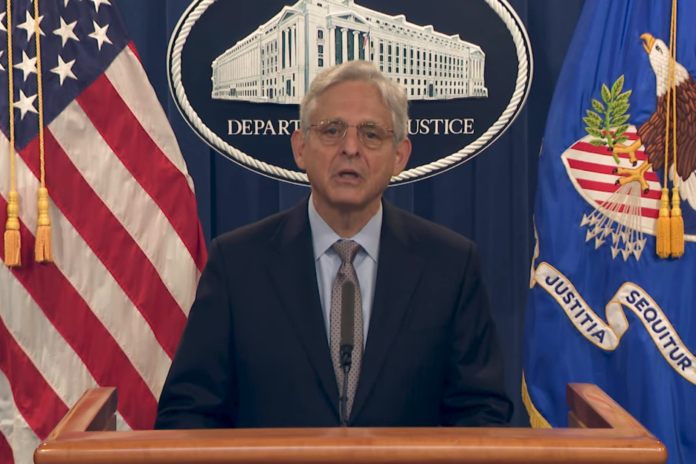
The Biden administration, namely the Department of Justice, has announced its intention to fight Texas’ new anti-abortion law and warned of its ability to prosecute anyone using threats, obstruction, or violence to prevent an abortion.
Attorney General Merrick Garland issued a statement Monday on behalf of the DOJ, saying the agency is considering multiple options to challenge the law. He also said the DOJ is fully committed to protecting abortion providers and women seeking an abortion.
“While the Justice Department urgently explores all options to challenge Texas SB8 in order to protect the constitutional rights of women and other persons, including access to an abortion, we will continue to protect those seeking to obtain or provide reproductive health services pursuant to our criminal and civil enforcement of the FACE Act,” Garland wrote.
The FACE Act, as the attorney general notes, was adopted in 1994 and prohibits injury, intimidation, and interference of abortion seekers and providers with “threats of force” or “physical obstruction.” The law also criminalizes intentional property damage of abortion clinics, or what Garland calls “facilities providing reproductive health services.”
According to the FBI, “violators of the FACE Act are subject to criminal penalties, including imprisonment and fines. The severity of the punishment depends upon the nature of the offense and whether or not the person who committed the crime is a repeat offender.”
Garland’s statement added that the DOJ is in contact with U.S. attorneys’ offices and FBI offices across Texas to discuss enforcement of the FACE Act in response to any violations.
“We will not tolerate violence against those seeking to obtain or provide reproductive health services, physical obstruction or property damage in violation of the FACE Act,” he wrote.
Alpha News reported on the implementation of Texas S.B. 8 last week. The new law prohibits all abortions after six weeks, roughly around the time a fetal heartbeat can be detected.
The Supreme Court recently voted 5-4 to refrain from blocking the law, a decision many Democrats are mischaracterizing as an unconstitutional breach of precedent in light of Roe v. Wade. The Supreme Court’s decision did not rule on the merits of the law, and in any event the court does not have an obligation to strictly follow precedent.
This has led to urgent calls from Democratic politicians to codify Roe v. Wade into federal law, which could only feasibly occur if they managed to abolish the Senate filibuster beforehand.
















